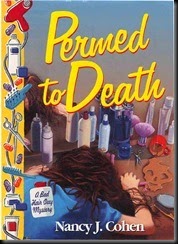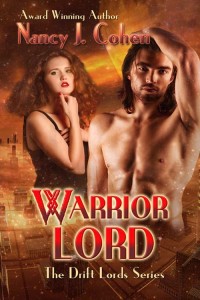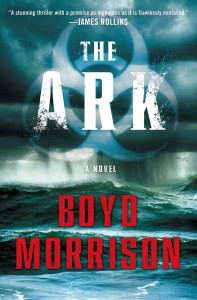Another brave writer submitted their first page for critique. My comments will follow.
Monstruo Cubano
Once inside La Libreria de Juan Carlos, Brook Harper squeaked in horror. She gaped at the rows of mildewed shelves lined not with books, but broken dishes and food encrusted utensils.
Venturing several steps further inside, Brook recalled the colorful display boasting overpriced tourist maps and Spanish-English translation books at the Miami Airport several weeks prior, and scanned the shelves for any hint of a travel section. Instead she discovered old soda cans and chewed apple cores had been tucked into the front window, obscuring the outside world with a thick layer of grime.
Brook hurried through an aisle, determined to inquire about a beginner’s Spanish book, but leapt wildly into the air. A hole in the crumbling wall revealed a nest of swarming cockroaches.
Brook skittered backwards, knocking into a shelf and sending dishes flying. Desperately searching for the exit, she spotted “SALIDA” over a doorway across the room, and bolted.
Sprinting down the aisle, something caught Brook’s foot and she was sent sprawling on the filthy floor. Scrambling upright, Brook saw a heap of crusty laundry. Peering closer, Brook shrank backwards as the rags sprang to life and eyes glared out.
Brook launched herself over the mangy cat and darted down another aisle. Soon she was sidestepping dozens of cranky felines, while her eyes watered from the lethal stench.
She rummaged in her handbag for a handkerchief, but found none. Instead she settled for her sleeve and groped along the wall, swiping at hissing tabbies and the foul air, until she had reached the shop’s back hallway.
Brook sprang over the last few cats and then let out a blood curdling scream. An enormous man leered over her. His girth topped his height by twice, and nearly a foot of it peeked out from underneath his soiled shirt on which a tiny badge was pinned deeming him the shopkeeper.
Juan Carlos’s bloodshot eyes were fixed on Brook, while his yellow teeth gnashed menacingly and his hair was slicked into an oily ponytail.
He reached out a greasy hand and thrusted a sign reading “Cookbooks, 2 for 1” at her.
“I’m sorry, I – I gotta run,” Brook choked out as she hurdled through the door, trampling a cat.
Brook burst into the scorching, bustling streets of Old Havana, and doubled over at the waist, sucking in the sweet smell of briny sea and exhaust fumes that were delightfully feline free.

Thank you, Brave Writer, for submitting your first page. A public critique takes guts, and I admire your courage.
From this small sample I assume s/he is just beginning their writing journey. So, TKZers, please be gentle and kind in your comments and suggestions (I know you will).
With that in mind, I offer the following critique.
Using a foreign language on the first page is a huge risk. As someone who doesn’t speak Spanish, my eyes glazed over when I read the title of the library. It wasn’t until the second read-through that I stopped long enough to figure out “La Libreria” meant “The Library.” That’s a problem. Most readers won’t bother to read the scene a second, third, or fourth time.
For more on using foreign languages, see this 1st Page Critique.
I want to point something out that you might not be aware of, Brave Writer. Note all the words in blue…
Once inside La Libreria de Juan Carlos, Brook Harper squeaked in horror. She gaped at the rows of mildewed shelves lined not with books, but broken dishes and food encrusted utensils.
Venturing several steps further inside, Brook recalled the colorful display boasting overpriced tourist maps and Spanish-English translation books at the Miami Airport several weeks prior, and scanned the shelves for any hint of a travel section. Instead she discovered old soda cans and chewed apple cores had been tucked into the front window, obscuring the outside world with a thick layer of grime.
Brook hurried through an aisle, determined to inquire about a beginner’s Spanish book, but leapt wildly into the air. A hole in the crumbling wall revealed a nest of swarming cockroaches.
Brook skittered backwards, knocking into a shelf and sending dishes flying. Desperately searching for the exit, she spotted “SALIDA” over a doorway across the room, and bolted.
Sprinting down the aisle, something caught Brook’s foot and she was sent sprawling on the filthy floor. Scrambling upright, Brook saw a heap of crusty laundry. Peering closer, Brook shrank backwards as the rags sprang to life and eyes glared out.
Brook launched herself over the mangy cat and darted down another aisle. Soon she was sidestepping dozens of cranky felines, while her eyes watered from the lethal stench.
She rummaged in her handbag for a handkerchief, but found none. Instead she settled for her sleeve and groped along the wall, swiping at hissing tabbies and the foul air, until she had reached the shop’s back hallway.
Brook sprang over the last few cats and then let out a blood curdling scream. An enormous man leered over her. His girth topped his height by twice, and nearly a foot of it peeked out from underneath his soiled shirt on which a tiny badge was pinned deeming him the shopkeeper.
Juan Carlos’s bloodshot eyes were fixed on Brook, while his yellow teeth gnashed menacingly and his hair was slicked into an oily ponytail.
He reached out a greasy hand and thrusted a sign reading “Cookbooks, 2 for 1” at her.
“I’m sorry, I – I gotta run,” Brook choked out as she hurdled through the door, trampling a cat.
Brook burst into the scorching, bustling streets of Old Havana, and doubled over at the waist, sucking in the sweet smell of briny sea and exhaust fumes that were delightfully feline free.
Look at all those strong verbs! You didn’t take the easy road, like “walked” for example. Strong verbs create a more vivid mental image. Problem is there’s way too many. In this short sample I counted at least 43 verbs. The second thing that jumped out at me was all the chaos in this first page. Don’t get me wrong, conflict is a good thing. It’s how we use it that matters. If the conflict doesn’t drive the plot in some way, then we need to rethink our opener. I’m not saying that’s what occurred here, but I want you to ask yourself…
Does the library or shopkeeper play a pivotal role in this story? What are you trying to accomplish with this scene? Does this opener set up a future scene? The answer should be yes. Otherwise, you’re wasting precious real estate.
For more on the best place to start a novel, see this post.
I love how you took advantage of smell, rather than relying only on sight. When I finished reading this submission, I felt like I needed a shower to get rid of the cat stench. Good job! We want our reader’s emotions to match our point-of-view character.
Now, take a deep breath, Brave Writer. This next part might be a bumpy road for you, but I’m hoping you’ll find value in my demonstration of how to write tighter and more concise.
Monstruo Cubano (Consider changing the title to English. Don’t limit your target audience. Back in 2014, Joe Moore wrote an excellent post on the subject.)
Once inside La Libreria de Juan Carlos, Brook Harper squeaked in horror. Brook Harper squeaked in horror when she stepped inside La Libreria de Juan Carolos, the closest library to her new apartment in Miami. (reworded to ground the reader) She gaped at the Rows of mildewed shelves housed lined not with books, but broken dishes and food-encrusted utensils instead of books. Did she have the right address? (added to show her confusion; for more on Show vs. Tell, see this post, which also dips a toe into distant vs. intimate/deep POV.) When she’d arrived at the airport several weeks ago, colorful displays advertised tourist maps and Spanish-English translation books, but this place didn’t even resemble those brochures.
Venturing several steps farther inside, Brook recalled the colorful display boasting overpriced tourist maps and Spanish-English translation books at the Miami Airport several weeks prior, and scanned the shelves for any hint of a travel section. Instead she discovered Old soda cans and chewed apple cores had been tucked into littered the front window, the outside world obscured by a thick layer of grime.
Stay in active voice, not passive. An easy way to spot passive voice is to add “by zombies” at the end. If the sentence still makes sense, it’s passive. Example: Old soda cans and chewed apple cores had been tucked into the front window by zombies. Since the sentence still makes sense, it’s a passive construction.
Where did they keep the Brook hurried through an aisle, determined to inquire about a beginners’ Spanish books? Brook hurried down an aisle, but leaped (leapt is archaic, use leaped) leapt wildly (adverbs and too many verbs and/or adjectives muddy the writing. For more on “writing tight,” see this post) into the air when a . A hole in the crumbling wall revealed a nest of swarming cockroaches. I think “swarming” here creates a good visual, so I’m leaving it alone. Be sure to read JSB’s post, though. Too much description detracts from the action.
Brook skittered backwards (“backwards” is the British spelling of “backward.” Also, “skittered” might not be the best word choice. I’d rather you show us the action. Example: Brook’s boots shuffled backward), knocking into a shelf. Dishes crashed to the floor. (added for sentence variation; for more, see this first page critique) and sending dishes flying. Desperately searching for the exit, she spotted “SALIDA” over a doorway across the room, and bolted (If Brook doesn’t even know beginners’ Spanish, how does she know SALIDA means EXIT? Something to think about).
Sprinting down the aisle, something caught Brook’s foot wedged under peeling linoleum and she sailed through the air, landed face-first she was sent sprawling on the filthy floor. Cat urine coated her palms and one cheek. Vomit lurched up her throat. Why did she ever come to this hellhole? Maybe her new boss wouldn’t notice her bilingual inadequacies. Good looks had gotten her this far (or whatever fits the character).
If you’re not using dialogue between two characters, inner dialogue allows the reader to get to know Brook. Who is she? Why is she in Miami? Where is she from? Is she shy or extroverted? We don’t necessarily need to know these things, but you do. For more on building a character, see this post and this post).
Okay, I’ll stop there.
TKZers, how might you improve this first page? Please add the advice I skipped. Together we can help this brave writer up his/her game.




